Why Banning Drugs Doesn't Work and Never Will
Introduction
I have been wanting to do a post on this for some time as I believe this is an issue that many people are aware of and can see the hypocrisy of but it is felt that this is something that will never change.
I will try to keep this brief and readable - at a future time I may do a more academic style post with full references and the like but I am intending to use this to start the discussion.
A Bit of History
Since the dawn of humanity and possibly going back even further human beings have used substances from plants, animals and other sources to alter their conscious state. In primitive societies the medicine men/women or shamans were held in high regard and used psychedelic substances such as psilocybin, peyote and ayahuasca to commune with their Gods, gain insight and basically connect with the world outside themselves.
The perception that mind-altering substances are inherently "bad" or even "evil" is something that has developed relatively recently. In the late 19th century it was common to use laudanum as a remedy for children (laudenum contains opiates) who were having trouble sleeping.
Cocaine was intitially considered a health remedy - one of the reasons why early recipes for famous Colas like Coca-Cola and Pepsi contained it.
This was also reflected in literature as Sir Arthur Conan Doyle (himself a physician who may well have partaken in recreational drug use) made Sherlock Holmes a frequent user of drugs like cocaine and morphine (although he ironically was critical of opium use due to the politics of the time- look up the 1st and 2nd Opium War).
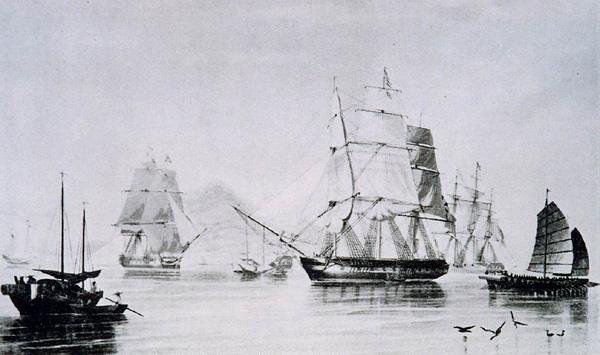
The perception of selected mind-altering substances being harmful emerged gradually throughout the 20th century and was often associated with certain members of society who were marginilised such as prostitutes, foreigners and the poor. This resulted in instances of "moral panic" where it was believed that drugs were agents of immorality.
Cannabis/marijhuana had been used for Millenia in many societies throughout the world both to treat illness and for it's spiritual properties. It only really started to be demonised in the early 20th century and there is a some suggestion at least that this was done as a means of promoting certain business interests.
The hemp plant (fibrous part of cannabis) has many uses both as a material in addition to it's potential as a pharmaceutical drug.
The pharmaceutical uses are becoming better known thanks to people with chronic health problems who have fought long and hard to have access to what they see as an essential treatment.
The recent legalisation of marijhuana in certain US states has lead to an acceleration in research into the health benefits.
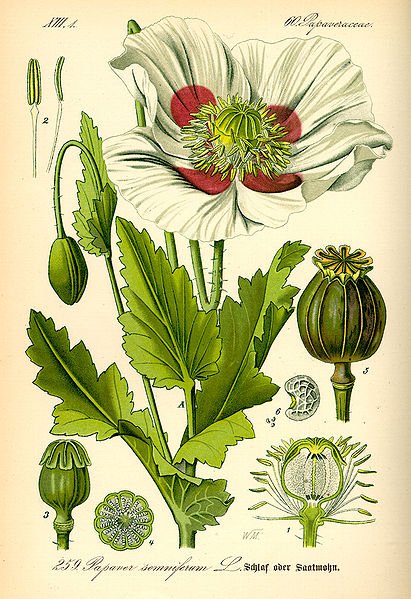
The 1950s and 60s gave birth to an explosion of drugs that had psychedelic or mind expanding effects. The most well known is LSD (first discovered in 1938). These became associated with the counter-culture movement of the 1960s and seemed to have been made illegal out of fears that they were at least partly responsible for these kinds of movements and that their continued use might lead to civil unrest.
This atmosphere lead to the current situation of drug prohibition with a number of United Nation's Conventions in addition to national policies which were instituted throughout the 1960s, 1970s and 1980s. (There is a nice summary of some of these here.)
The often used term of the "War on Drugs" comes from a 1971 press conference by then United States President Richard Nixon.
Why banning drugs doesn't work
People will take them anyway or find alternatives
People have always used mind altering substances and they always will. There is a natural biological drive to do it. Further some substances e.g. those derived from cannabis have shown benefit to people with chronic conditions which have otherwise failed to be treated with conventional "legal" medication.
If people will seek out illegal substances for recreational purposes it is even more likely that they will do so to treat a crippling disease which destroys their quality of life.

It stifles research and impairs quality of life
As another example of this I have encountered cases where people with severe, life- limiting Parkinson's disease have been using MDMA to medicate their condition.
It has in some cases led (temporarily) to a complete absence of symptoms - a remarkable transformation - indeed this was illustrated quite starkly in a BBC "Horizon" documentary several years ago.
Unforutunately this has not been given the attention or research time it deserves because MDMA is illegal in most countries and it is considered difficult to get the appropriate licenses, not to mention expensive, controversial and not cost effective from a potential profit standpoint.
More recently there is preliminary research which indicated that psychedelic drugs such as LSD might be of benefit in a whole range of conditions potentially even offering cures for diseases such as depression, addictions and PTSD. There is also some indication that they may be of benefit in terminal illness. Some of these findings are summarised here in Wikipedia (some of the actual papers require academic access or a subscription - this literature review is free though).
The recent trend of copycat "legal" highs (which) have made a mockery of many legal systems have often lead to people using substances which are poorly understood and can get around conventional tests. It can also leave medical services unsure of how to treat patients who present under the influence of such substances.
It funds criminals and terrorists
This is pretty obvious. If something is illegal criminals will step in to take over the market and fill the vacuum.
Not only is it obvious from simple economics but this has been seen numerous times with banning things in the past. The most direct example would be the prohibition of alcohol in the US in the 1920s and it's role in the rise of organised criminals.
These days one can add another potential group of criminals who might use drugs to fuel their criminal activities and that is terrorists.
It puts people's lives in the hands of those same criminals
Whilst a lab producing a pharmaceutical grade drug is tightly regulated and rightly cares whether the substance they are giving to you is correct and in the right dosage - a criminal doesn't necessarily have those same concerns.
This is one of the reasons why people often overdose on drugs like heroin - often the heroin is diluted or adultered in some way giving people a false impression of the dose they need to take.
Then if a new batch comes on the market that is of a higher strength than usual it can result in people suffering overdoses due to mistakenly taking too much.
In the 1980s, a batch of a designer drug (MPPP) ended up causing a number of teenagers and young adults to develop Parkinson's Disease after a single dose which was contaminated with a neurotoxin (MPTP). (See "The Case of the Frozen Addicts" by Langston)
It treats adults like children and can make drugs more attractive
If an adult chooses to put a substance into their body knowing the full risks then surely in a civilised and free society that is their choice.
- The same way that it is their choice if they decide to eat 3 cheeseburgers in a row or drink half a bottle of vodka.
If anything telling people not to do something can have the opposite effect and make that particular activity more attractive as a form of rebellion against the system.
It also gives the wrong message that somehow legal drugs like alcohol and tobacco are somehow safer and less dangerous than the illegal ones - which is not true at all.
One of the arguments used by those who are morally opposed to drugs is that simply allowing people to take drugs would lead to an inevitable collapse of society with everyone ending up being hopelessly addicted to hard drugs.
Well we already have two drugs which are near universally available, legal and are known (indeed proven) to have the same addiction and abuse potential as the hardest illegal drugs i.e. alcohol and tobacco.
Whilst there are some people who become alcoholics and chain smokers, unable to live their regular lives anymore - they are a tiny minority.
Although the harm done to the minority who are affected can be severe society has yet to collapse as a result. There is no reason to assume that it would be any different with other drugs.
It can stifle art and creativity
This is probably going to be considered a very controversial point.
Some of the greatest art we have has been created under the influence of mind-altering substances.
Vincent Van Gogh was alleged to have been partial to Absinthe (an alcoholic drink which contains wormwood - a natural psychotropic agent).
Obviously like the case of Van Gogh a lot of this is under the influence of legal substances such as coffee and alcohol but there is a substantial amount that we have thanks to the possible effect of the less legal ones too.
I won't go into specifics as I don't want to make accusations or slander anyone. Neither do I want anyone to give the impression that I'm condoning the use of illicit substances for this purpose.
I'm merely pointing out something that is well known and in some cases openly admitted by some musicians, artists, creatives and even scientists.
They may even have helped in the discovery of DNA. (Note this has never been confirmed and is a matter of some debate).
It is a lost source of jobs, enterprise and tax revenue
These are all obvious things and should be "music" to the ears of most governments.
You could have a whole industry of new businesses, creating new jobs and all of them paying extra tax on top of that.
Plus you wouldn't have to lock so many people up or drug related crime, so you can build fewer prisons, reduce crime and reduce your policing costs.
The extra money you save could be used to treat people who develop harmful addictions and other related health or social problems.
It protects monopolies and vested interests
The example of hemp being banned in the US would be an example of this but one must also consider the effects of legalising drugs which might offer better treatments or even cures for chronic diseases such as depression which are a source of enourmous profits for pharmaceutical companies. It is not surprising that there would be some resistance to this from certain quarters who would be interested in protecting their profits.
It discriminates against certain minority groups and spiritual beliefs
Many religious and cultural groups also use psychotropic substances and the illegality or banning of such substances can be seen as a form of discrimination. A good example would be the use of cannabis by Rastafarians and the use of psychedelics by certain native tribes.
This is also demonstrated by the recent outlawing of Khat in the UK which was used by people from certain African and Middle Eastern communities. It has not only had an impact on some of the communities where it was grown (economically) but also outlawed what was seen by many as a relatively harmless substance for what seem like purely political reasons and general ignorance.
Conclusions
I hope this is food for thought and that this post hasn't been overly long or difficult to read. I would also like to apologise for any obvious points I have missed or forgotten as well as any typographical errors or grammatical mistakes I have failed to pick up on.
I would like to make it clear that I personally do not condone the use of illicit drugs or illegal substances and I do not take them myself.
I do urge everybody to educate themselves and if they absolutely must take illegal drugs to take all the safety precautions that they can.
There are a number of government initiatives/websites which aim to help educate people. (e.g. Frank.)
My main intention here was to point out why the current system doesn't work and why I believe the philosophy of prohibition itself is inherintly flawed and ends up causing more harm than good.
Please get involved in the discussion below.
(Images are all public domain and taken from the wikipedia pages about specific drugs and drug policy.)

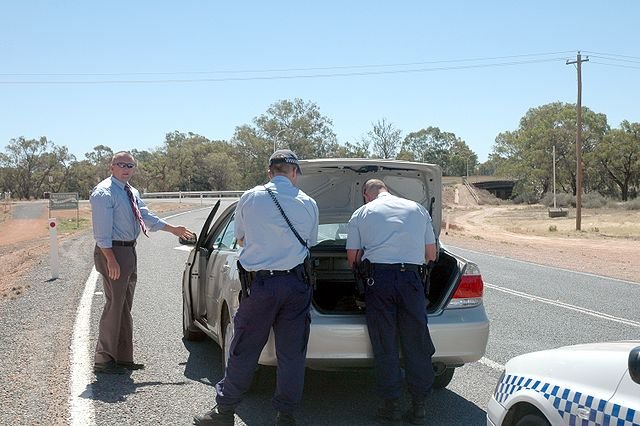
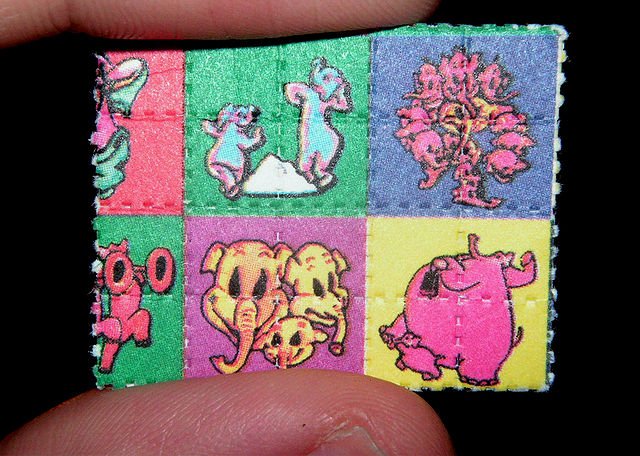
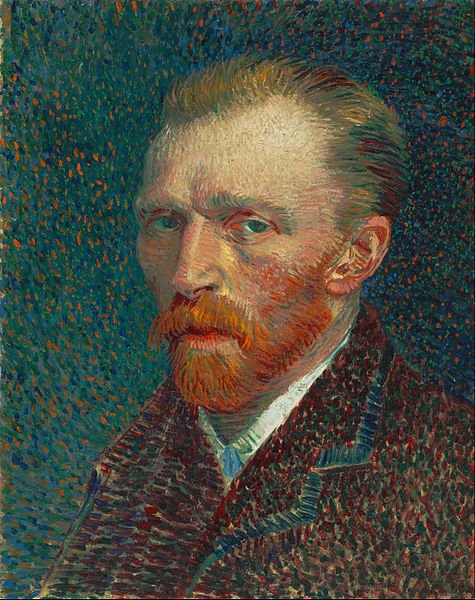
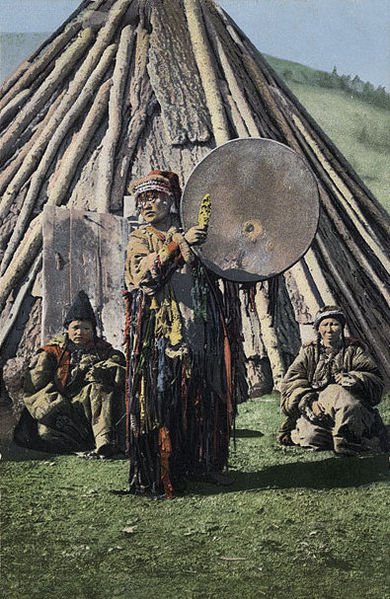
I upvote U
This is undervalued.
Sadly drug articles are not well received here.. even those preaching harm reduction.
Thanks. Yes I'm not pro drugs but I think the current laws actually increase harm as I state in the article. Thanks for taking the time and supporting though. It means a lot. Maybe eventually more people will read it:)
I agree ! Totally Undervalued . Let's see what will happen with more than 500000 Steemers .
I am not pro and not anti ! I took everything you can't even imagine and some experience , especially with DMT ( AYA , the grandmother of all plants ) medicine not drug ! was mind blowing and essential for the knowledge of myself. Alcohol is not a medicine , Alcoholics and other addicts need help healing a disease .Jail should not be a solution to this problem.
I'm not pro but I'm not 100% anti because there is a certain hypocrisy in me telling people not to take some drugs whilst I guzzle down a super strong coffee every morning and the harm argument is also hypocritical whilst alcohol and cigarettes are perfectly legal. Having spent extensive time working in hospital A&E departments you see the harm alcohol does on any average weekend.
I've just read this post. It is quite dissapointing that it has not been rewarded properly, because it is very interesting and you, evidently put a lot of effort in writing it.
I sent a messsage to @biophil. Hopefully, he will consider your post for his next "digest" post.
Thank you very much. That is very kind of you. It is at least nice to know that sensible, intelligent people that I respect (like yourself) read it and appreciated it. I'd be happy for someone else to republish it if it gets more readers - thanks:)
I agree with you 10000% on the rewards for such well thought out article and interesting topic
Although I personally lean more on the side of keeping recreational drugs illegal, I find the arguments for legalizing them interesting. It really comes down to where do you draw the line between freedom and safety. The price of freedom is that quite a few people will make the wrong decision. The question then becomes... to what extent do we put laws in place to save people from themselves or others from suffering as a result of their bad decisions.
Take infant car seats, for example. They save lives. As a society we value our children. But is it right for the government to force parents to use them? If car seats aren't mandatory, there will be parents who won't use them, and some of their children will die needlessly in car accidents.
I'm a firm believer in car seats, and I will use them whether I have to or not. I don't know that too many people disagree that car seats should be used. However, take something more recently controversial like vaccines. There are those who believe strongly that everyone should get them for their own health and that of their neighbors. There are others who believe the risks of vaccines outweigh the benefits and decline them. At this time the general government belief is that vaccines are a matter of public health and therefore should be mandatory. But those who believe vaccines are dangerous do not want to be forced to take them. Should people be forced to take a medical substance they don't want to take in the name of protecting themselves and their neighbors from communicable diseases?
I see drug legalization in a similar way. There is individual freedom on one hand and responsibility to one's neighbors on the other hand. Where does one draw the line? In the case of alcohol or marijuana, it probably doesn't directly harm anyone if someone locks himself in a room and gets drunk or high. But if in that state he goes out driving, then he really could hurt others. That might seem easy: make the substance legal but make it illegal to drive while under its influence. But what about the scenario where a man with a family to support spends money and time on drugs and neglects his family? Even if he never drives under the influence, he's still hurting others. That happened a lot at one time in American history and fueled prohibition.
My point is there is quite a continuum when it comes to how one's actions negatively affect others. Laws are in place to mitigate the worst excesses, but really can't address all the grievances; if they try they get too draconian. The drug legalization issue really is about where to draw the line between appropriate laws to protect society and needless infringements on personal freedom. It also illustrates that without a solid majority of society striving to be virtuous and morally excellent, all the laws in the world won't be able to protect people from the harm of those whose actions do cause others to suffer. When more people are virtuous and morally excellent you tend to not need so many laws as people will be more motivated to do the right thing.
As a disclaimer I should state that in my argument I am making the assumption that laws are passed and enforced with the benefit of society in mind. I realize in real life that is not always the case. The "war on drugs" is a case in point. Part of the reason it hasn't been effective is that it's been a lie. Our government has pretended to fight drugs while also secretly benefiting from the drug trade. If it actually was about ending the drug running, I could see it being quite effective. For this reason I don't see legalizing drugs as necessarily the right answer to the problem that the "war on drugs" is not working. The answer actually could be prosecute the war so as to win the war with victory being near elimination of the drug trade.
You make some valuable points. The problem is that the current legislation actually causes more harm than it prevents. This has been illustrated by numerous historical examples and more recently through those nations which have been brave enough to decriminalise drugs.
War on drugs is all about $$$, the Government doesn't like people cutting in on their action. It's got nothing to do with the welfare of people; have a look into how Portugal legalized all drugs and how that is going for them. Drug addiction is down and drug addicts are treated like patients and not like criminals. Good on you for posting and educating the steemit populace.
To finish I'd like to quote a fantastic book I read on the subject a few years back: "Prohibitions, the lines that throughout history have been drawn around bottles and behaviors, powders and plants, are tools of power. The drive toward sexual pleasure; the urge to temporarily escape day-to-day consciousness through intoxication; the questioning of the value of one’s existence, particularly when it seems too painful to endure -all are part of what it means to be human. The way we address these powerful and primary questions of identity defines our individuality. By circumscribing them with taboos and prohibitive laws, society denies its members self-knowledge and allocates itself punitive power over sexuality, consciousness, and self-determination -the most intimate domains of individuality.
It was not for nothing that Islam was built on prohibition against wine and gambling, and just about every major faith on proscribing certain types of sexual pleasure. Nor should it be seen as an accident that in the Judeo-Christian tradition, the archetypal humans were warned to stay away from forbidden fruit: the absurdity of picking a harmless apple (though it may well have been a pear, a fig or a pomegranate) says a lot about how power likes to assert itself through arbitrary prohibitions. It was the serpent, the tempter to knowledge, who invited humans to their first picnic. As Mark Twain put it : “Adam was but human -this explains it all. he did not want the apple for the apple’s sake, he wanted it only because it was forbidden. The mistake was in not forbidding the serpent; then he would have eaten the serpent.”
Yes. Actually I have heard others say that too. The war on drugs is to protect the business model of agencies like the CIA who use drugs as a way to raise money for covert operations.
I'll see if I can find that book sounds like a fantastic read.
Agree about religions:)
Thanks for your very intelligent input:)
Well written, poingnant article. Simple fact is war on drugs is a spectacular failure and hirts addicts and their families more than traffickers/cartels. The trend should be to treatment for addicts, not possession charges that can easily mess a good persons life with no other record up significantly. Its obvious the laws have very little deterrent value. Totally agree with your sentiment! Good write.
Thanks. Fully agree treatment is the way rather than criminalisation.
i wish people would educate themselves as much as you obviously have for this article, its true, drugs are dangerous, but understanding is what we need.
Thank you. Yes it is sad but most people don't like to learn the truth and let the mass media educate them.
Wow, what an informative, well-written post; thanks for sharing your ideas here. You've made a very persuasive argument and I agree with everything you've written here. I hope that the spreading legalization of marijuana in the United States will eventually open up the possibility of decriminalizing other drugs, like in Portugal, Spain and Italy.
Great article, upvoted!
Thank you so much for your kind words and for voting. Feel free to share the article if you like. The more people we get involved in discussing these issues in a rational manner the better. I speak as both a patient and a physician, so I have a unique perspective on some of these issues. Hopefully you are right and we will get new possibilities opening up. I find it tragic that I was unable to offer my patients treatments that could have been life changing because of the hysteria surrounding illegal drugs.
thecryptofiend very well done and i agree ,I posted a blog a while back about the healing qualities of RSO oil extracted from marijuana you may want to check it out.
https://steemit.com/marijuana/@me-tarzan/medical-marijuana-and-rso-ron-simpson-oil
Thanks. Will take a look.
Why stop at just drugs? I can't think of anything that's been banned or outlawed that has prevented a person from doing something.
I had a conversation with a friend yesterday about laws and bans. I asked if robbing a bank weren't legal would he do it.
He said he would and when i asked why he said because he wouldn't go to jail.
I asked him how he felt about getting shot, and he claimed it was usually only one guard so he wouldn't get shot. I replied with if it isn't against the law what makes you think they would still only have 1 guard? I know if i owned a bank I would have a small military force or something, you'd be dead the second you tried anything. Metal detectors all sorts of extra stuff.
Right now most people know its insured and the cops will chase you so there isn't much incentive. If the cops didn't care I would say the risk is worse than jail.
Yes. Well done you completely missed the point.
Definitely. It's about harm reduction, not about creating a perfect world. The war on drugs doesn't work, we need another solution.
I also think people should have the right to decide what to do with their own life, as long as it doesn't put others in danger. You should be allowed to use drugs (other than alcohol) if you want to, just as you should be allowed to do extreme sport, or other potentially dangerous activities even though there are a certain amount of risk involved.
Exactly. Looks like you read the article. Thanks for your well reasoned comment.
I wasnt suggesting that the war on drugs was working. As far as harm reduction junkies have caused a fair amount of harm to the people around them. Thats for all of them to deal with. I got to watch my sisters 2, 3 , 9 year old kids go through having a junkie for a mother for as long as i could stand it. Im not mad I wish my sister well and hope she can get whatever help she needs someday. Fact is she continues to choose that life after several treatments. No one can stop it except her.
@zerowole I can sympathise about your attitude towards drug use however your sister's case has no bearing on whether drugs should be legalised or not. It sucks that people make bad choices but as your sister has shown people will make them anyway. A lot of people suffer because their parents are alcoholics but that does not mean we should ban alcohol.
Not everyone who takes drugs is an addict, same way that not everyone who takes alcohol is an alcoholic. The banning of alcohol and then it's subsequent legalisation has shown that prohibition does more harm than good. It also wastes vast amounts of money criminalising people instead of giving them treatment.
Maybe your sister has refused treatment in the past or maybe she has failed because she is unable to cope with life without drugs.
I don't know her specific case but I come across a lot of people who found it almost impossible to give up in the throes of addiction.
It is an illness and should be seen as such. An addict is unable to make rational decisions. That is not and never should be a basis to make decisions about the rest of the population.
That would be like banning peanut butter because some people have peanut allergy.
I also don't think you should ever give up on your sister but that is for you to decide.
I have known many people who were unable to change after being given multiple chances and seemed like they were completely lost.
Then for whatever reason, something changed, they realised what they were doing and had some kind of epiphany which enabled them to accept help.
It was never a completely smooth road but many of those people have succeeded in fighting their addictions and starting the path to recovery and remission.
It is rarely (if ever) too late to change.